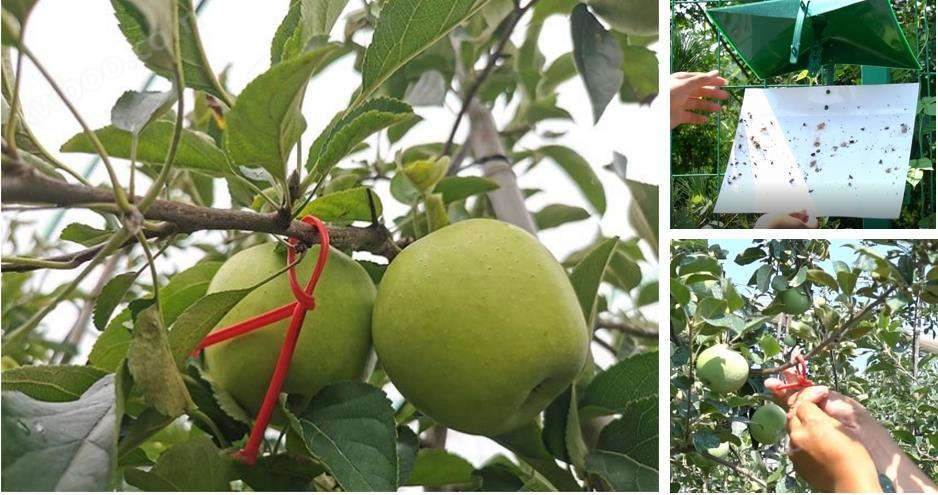In the current era where people are increasingly concerned about safety, hygiene, environmental protection, and green practices, the use of traditional pesticide sprays not only increases manpower, but also incurs economic costs and pesticide residues, posing a threat to the health of practitioners and the ecological environment of orchards. Therefore, specialized, efficient, and pollution-free sex attractants are increasingly valued by people, and Xinyuan Fruit Industry Company has decided to enter this field. The company cooperates with Dr. Zhao Kang, a Yangtze River scholar, on the synthetic technology of metacentric silk of peach and pear fruit borers, and cooperates with Ge Feng, director of the State Key Laboratory, Institute of Zoology, Chinese Academy of Sciences, on the ecological control technology of pests in orchards, focusing on the research and development of insect sex attractants. Its advantages are as follows:
1) Low environmental pressure: In this series of reactions, there is basically no need for additional treatment by recycling and reusing the reaction solvent; By selecting efficient catalysts, the use and post-treatment of a large number of inefficient catalysts can be avoided.
2) High product performance: The final product is a mixture of multiple compounds, which contain different isomers of the same compound. The different ratios will affect its performance, and the difficulty lies in controlling the proportion of isomers. We can control it by changing the experimental conditions.
3) Low production cost: Through process route screening and catalyst selection, the conditions required for the series of reactions are relatively mild, which saves energy; Most of the by-products of the series reaction can be converted into the products of the reaction through the reaction, which relatively improves the selectivity of the reaction.

The functional plants for ecological regulation of pests mainly refer to honey source plants that help natural enemies of pests control biological damage or (and) pollinate and fertilize insects, habitat plants and storage plants that are conducive to natural enemies of insects, as well as attractant plants that attract pests, repellent plants that can repel pests, and attractant plants that can lure and kill pests. Obviously, functional plants mainly play a role in conserving natural enemies and pollinating insects, protecting natural enemies and pollinating insects while not becoming target pests in the food chain. They usually have four characteristics: conserving and storing natural enemies and pollinating insects without conserving pests and avoiding them. So planting functional plants between rows of dwarf rootstock apples, combined with insect attractant products, can achieve better biological regulation effects.
 |
 |
 |

